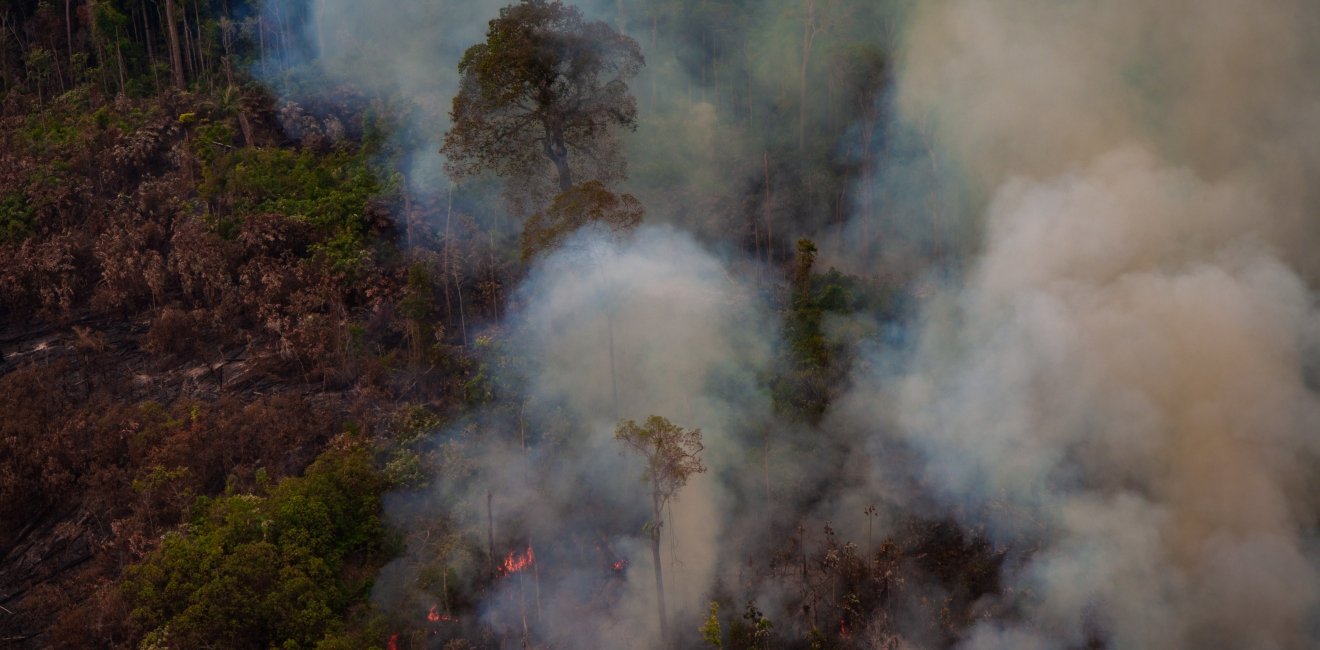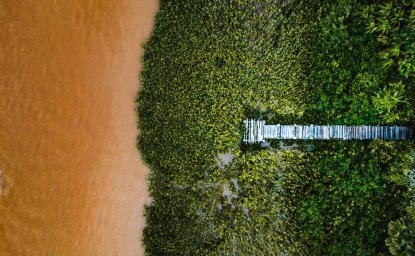Brazil is burning. Between January and August 2024, the National Institute for Space Research (INPE) recorded over 110,000 wildfires that have burned through 114,000 km2—an alarming 116% increase compared to the same period last year. While the fires have spread across the country, they are concentrated in the Legal Amazon states of Mato Grosso, Pará, Amazonas, and Tocantins, as well as in Mato Grosso do Sul, home to about 22 million people. This crisis follows devastating floods in Rio Grande do Sul in June, which killed more than 200 people and displaced nearly 400,000 more.
The exact cause of the fires remains unclear, fueling conspiracy theories from both the Left and Right about deliberate arson. However, there are strong reasons to believe that such large-scale fires could become recurring as ecological conditions shift. Fire has been used as a tool for land clearing and fertilization in Brazil since pre-colonial times. While current laws require landowners to obtain permits for controlled burns, these regulations are often disregarded. Now, with the added pressures of global warming and the effects of El Niño, an age-old practice is being amplified by unprecedented circumstances. Addressing this disaster requires a comprehensive strategy focused on two critical areas. First, it is crucial to anticipate and combat the fires while holding those responsible accountable. Second, the response must address the severe drought exacerbating the fires’ impact—something far from a mere “natural occurrence.” While the media has given considerable attention to the fires themselves, the role and severity of the drought have been surprisingly overlooked, despite its central importance in worsening the crisis.
An age-old problem…A vast body of literature shows that in presidential systems like Brazil’s, the president is often the first to be blamed for major disasters, even when those issues fall outside federal jurisdiction. In the case of fires, state governments are responsible for authorizing their use in agricultural practices, issuing fines for violations, and controlling fires across most of the affected areas. The federal government's role is to articulate and coordinate these efforts.
President Lula and Environment Minister Marina Silva have publicly admitted that the fires were not adequately anticipated and that coordination efforts fell short. In response, the Federal government allocated an additional R$514 million in emergency funds, alongside R$400 million from the Brazilian Development Bank (BNDES) to support state-level fire departments in the Legal Amazon equipment, materials, and vehicle purchases. The government also introduced measures to strengthen collaboration between federal agencies like the Brazilian Institute of Environment and Renewable Natural Resources (IBAMA), Chico Mendes Institute for Biodiversity Conservation (ICMBio), National Institute for Colonization and Agrarian Reform (INCRA), the Federal Police, and the Army with state governments.
…Under unprecedented circumstances – It is essential to recognize the conditions that have intensified the impact of these fires compared to the past, particularly the rapid drying of the country. Data from the Center for Monitoring and Alerts of Natural Disasters (Cemaden), linked to the Ministry of Science, Technology, and Innovation (MCTI), shows Brazil is facing the most severe drought in 70 years. The droughts of 2023 and 2024 cover an area of 5 million square kilometers—more than half of Brazil’s territory—affecting over 70% of municipalities, with 201 classified as experiencing extreme dryness. In addition to natural events like El Niño, there's no denying that human activity is driving these droughts. The Amazon Rainforest produces 20% of the planet’s freshwater, and through tree transpiration, it releases more water into the atmosphere each day than the Amazon River holds. These so-called "flying rivers" bring rain that irrigates crops and replenishes rivers and reservoirs. They also play a crucial role in regulating rainfall in neighboring countries like Bolivia and Paraguay.
Deforestation poses a serious threat to these flying rivers. A study by the Climate Policy Initiative shows that deforestation alters rainfall patterns, leading to degradation in regions far beyond where the deforestation occurs. On average, for every 100 trees cut down, an additional 22 die in distant areas due to water scarcity. Fires and selective logging further exacerbate this degradation.
This underscores the inseparable link between concerns about wildfires and the need to address deforestation rates in Brazil. A crucial yet often overlooked aspect of the fire debate is the key role of Brazil’s Legislative branch. Land grabbing ("grilagem"), a major driver of deforestation, often begins with the illegal invasion of unassigned lands—60% of which fall under state jurisdiction in the Legal Amazon—and frequently ends with the passage of amnesty laws that reward such invasions. these amnesties, regularly passed by the Brazilian Congress, perpetuate the cycle of deforestation by incentivizing further illegal land occupation.
These laws enjoy strong backing from legislators in the Agribusiness Caucus (Frente Parlamentar da Agropecuária, FPA), the most organized and powerful caucus in the Brazilian Congress. In the current legislature, the FPA comprises 324 representatives in the House and 50 in the Senate, out of a total of 513 and 81 members, respectively. The Think Agro Institute (IPA) —- which, for all purposes, works as a lobby even though lobbies are not regulated in Brazil —- plays a significant role in shaping policy discussions in Brasília. It holds regular meetings with legislators and policymakers, counts on the support of several agribusiness associations, and serves as a connector between large producers with lawmakers. It also offers advisory services to the FPA through a technical cooperation agreement, facilitating dialogue on key issues affecting the sector.
Recent initiatives supported by the caucus include removing protections for all native grasslands and other non-forested formations (Bill 364/2019), reducing legal reserves in the Amazon (Bill 3334/2023), granting amnesty to deforestation agents (Bill 2374/2020), allowing irrigation projects in permanent preservation areas, and eliminating controls on secondary vegetation in areas designated for alternative land use. These measures could allow for the deforestation of approximately 17 million hectares of regenerated forests without proper oversight, among other provisions that would incentivize further deforestation, particularly in the Amazon. If these bills are passed, Brazilians can expect disasters like the current wildfires to occur with increasing frequency.
A noteworthy aspect of the IPA is that most of its funding nowadays comes from the agro-industrial exporting sector rather than from agricultural producers. These agro-industrial associations, facing pressure from international governments and consumers, often adopt a significantly "greener" rhetoric compared to farmers, who are less influenced by such external demands.
Considering this reality, I conclude this article with a recommendation. When readers come across statements from Brazilian agribusiness associations expressing concerns about natural disasters like floods and fires or calling for more effective government support, it may be worthwhile to consider how these organizations actively engage with the agribusiness caucus to advocate for pro-environment policies.
By examining the agenda of the agribusiness lobby, one can better understand the true commitment of its members to sustainability and the environment.
Author

Professor of Political Science and International Affairs, Getulio Vargas Foundation, Brazil

Brazil Institute
The Brazil Institute—the only country-specific policy institution focused on Brazil in Washington—aims to deepen understanding of Brazil’s complex landscape and strengthen relations between Brazilian and US institutions across all sectors. Read more





